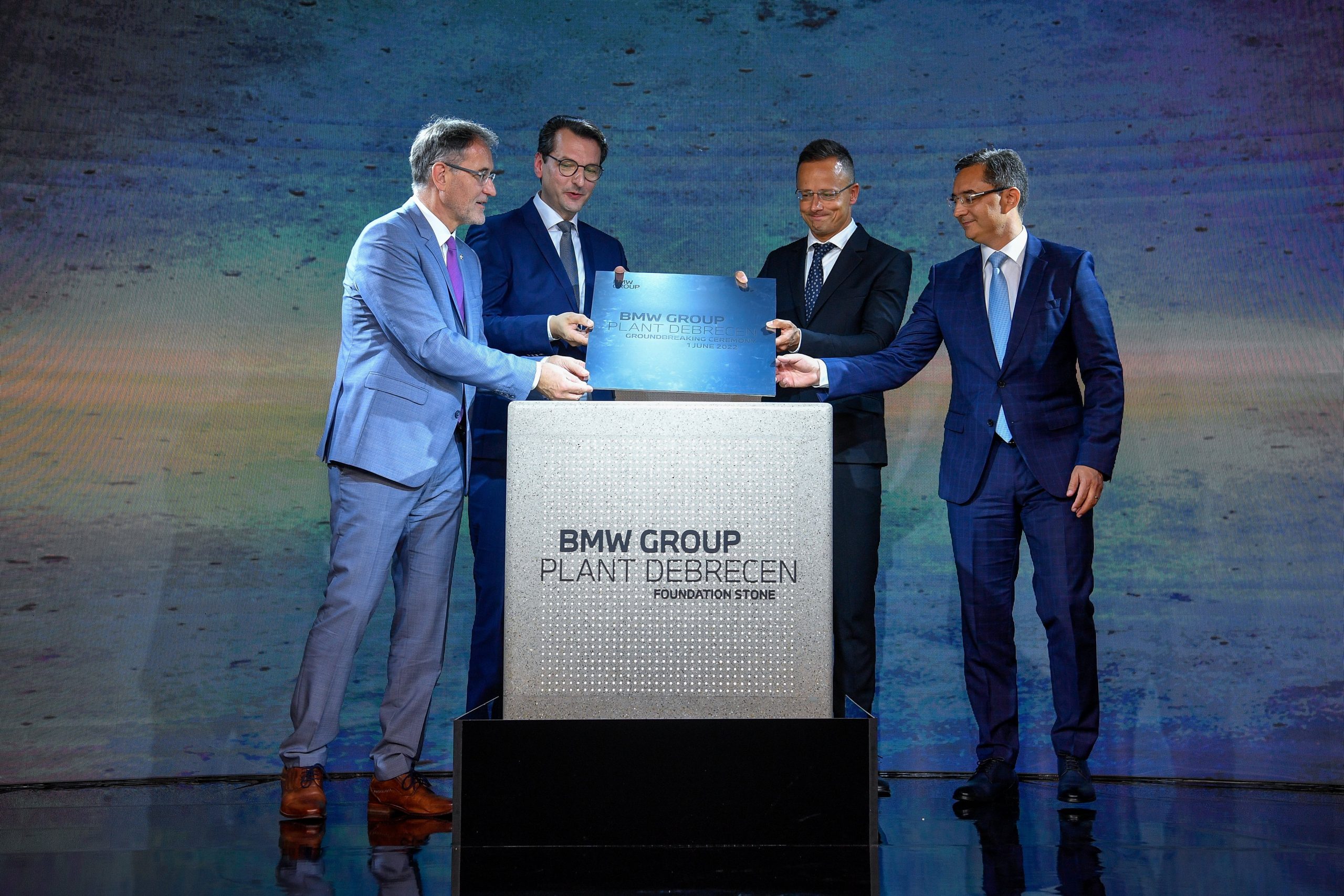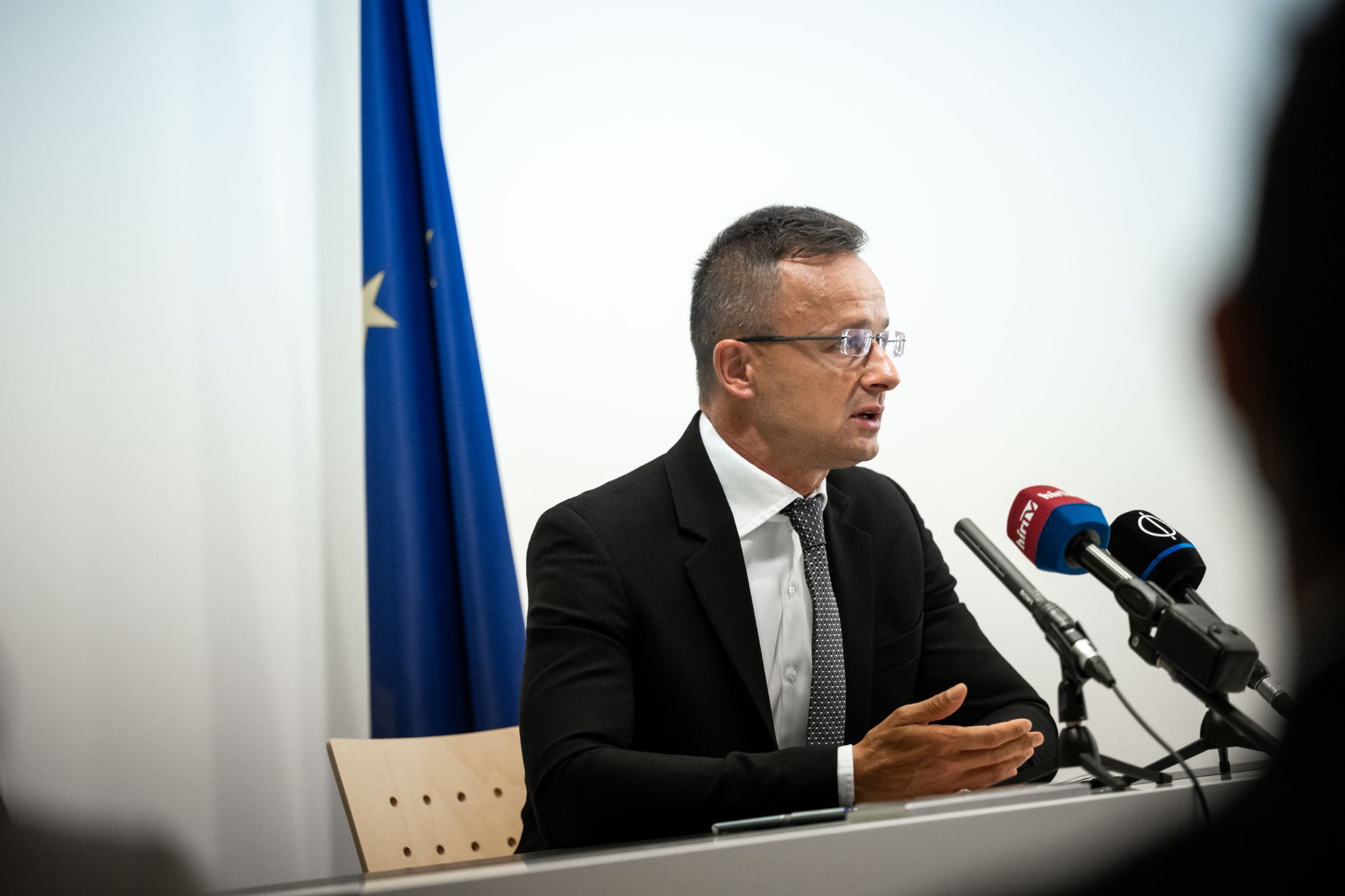
The €1 billion investment is expected to allow the yearly production of 150,000 cars of the fully electric Neue Klasse.Continue reading

Like the economy of Europe as a whole, its car industry faces grave challenges in the coming period, the minister of foreign affairs and trade said on Monday.
“The inflationary environment, rising raw material prices, and the uncertainty around supply chains pose serious challenges to the car industry,” Péter Szijjártó said on Facebook, noting that he and BMW board member Milan Nedeljkovic laid the cornerstone of a BMW plant in Debrecen, in eastern Hungary last month and they consulted via video link on Monday.
“It’s especially important not to put extra burdens on the sector,” Szijjártó said.
Factors such as environmental protection should be considered alongside strengthening competitiveness, he said.
He said a key European sector should not be allowed to fall prey to ideology or politics at a time “when the European economy needs support.”
“Now is not the time to cast a date in stone” for phasing out conventional car engines, he said. “Naturally, emissions must be cut, but this must be dictated by common sense,” he added.
The Foreign Minister underscored the importance of the car industry’s future for Hungary, noting that the sector’s annual production volume totals close to 10,000 billion forints (EUR 24bn) and it employs around 150,000 people.
Earlier this month, the European Parliament gave its backing to an EU plan to effectively ban the sale of conventionally fuelled internal combustion engines from 2035. However, as the deadline for the final adoption of the proposal approaches, several countries are pushing to amend or outright scrap the target date.
According to an earlier report by Reuters, five countries – including Italy, Portugal, Slovakia, Bulgaria, and Romania – want to delay the phase-out.
Based on Minister Szijjártó’s comments, it seems unlikely that Hungary will support the adoption of the plan either.
Featured image via Péter Szijjártó’s Facebook page